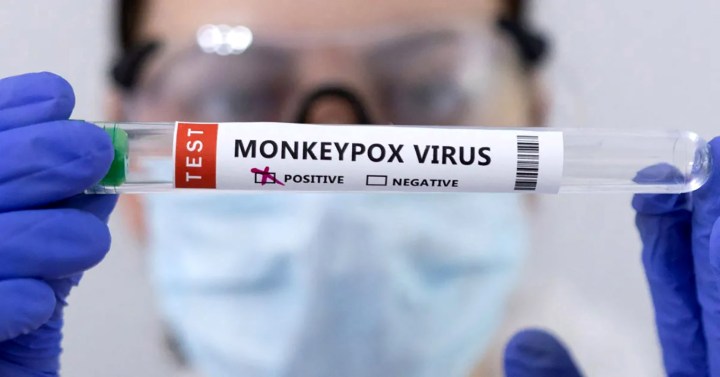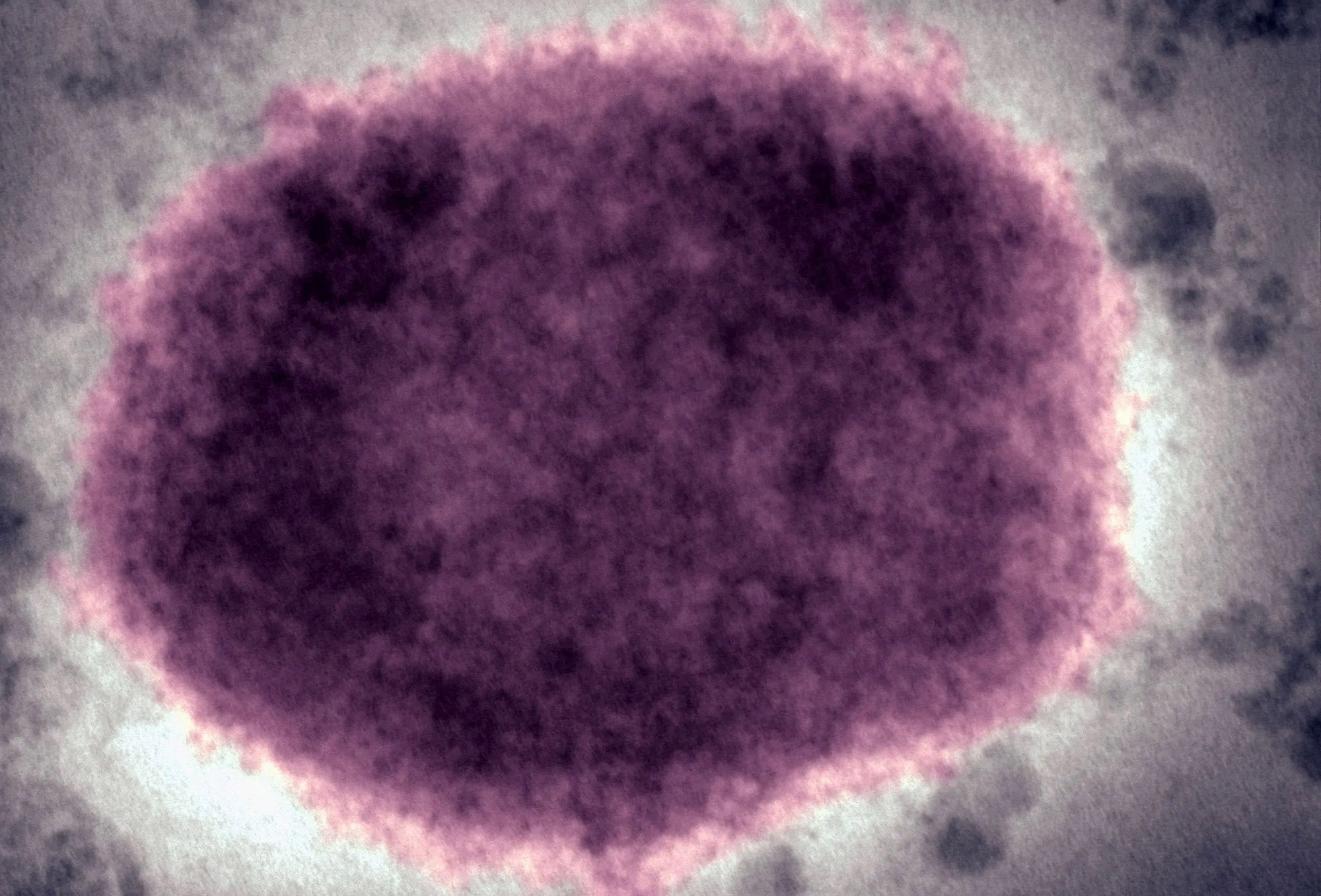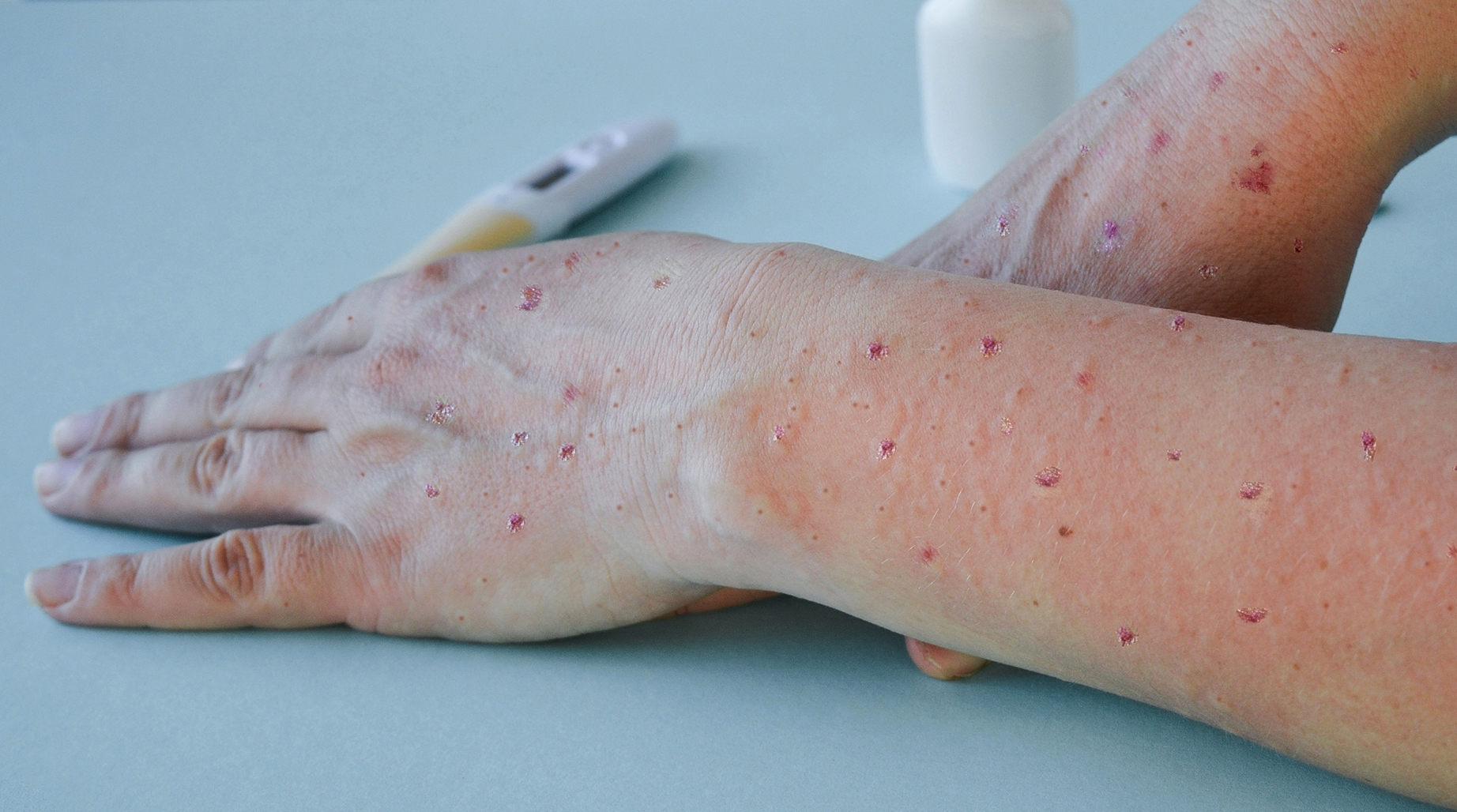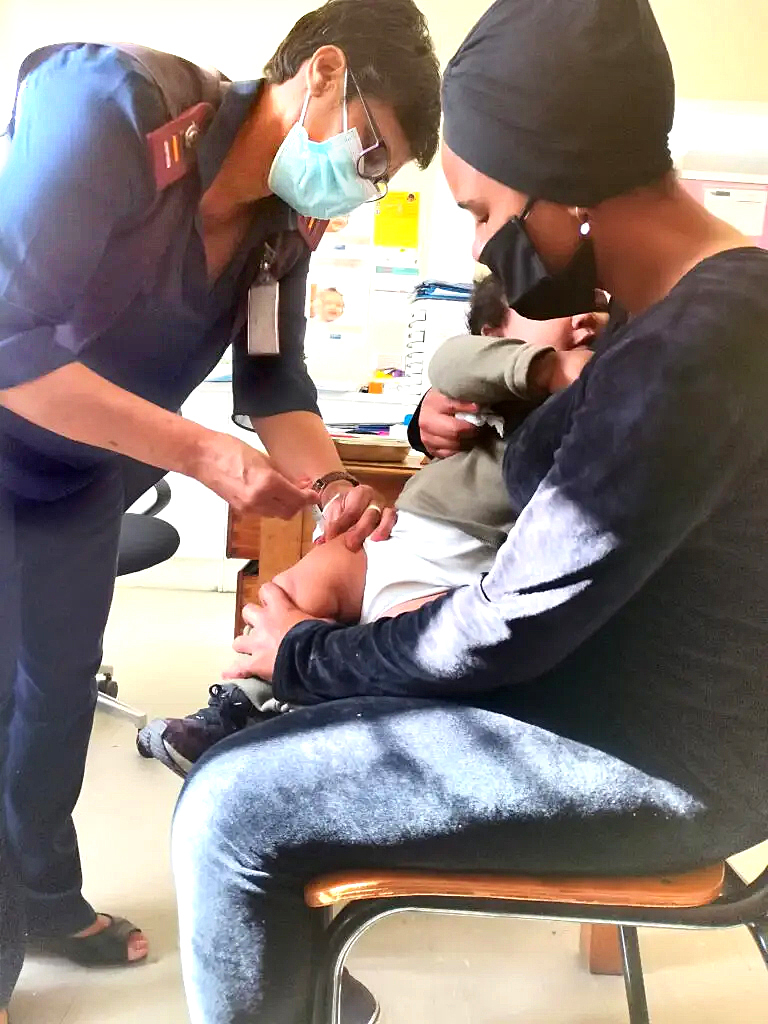SPOTLIGHT
Monkeypox – experts answer 10 common questions

This week, South Africa recorded its first case of monkeypox. Spotlight asked the experts and consulted documents from the World Health Organization and the National Institute for Communicable Diseases for answers to our top 10 questions about the disease.
Last Thursday morning, Health Minister Dr Joe Phaahla announced that a 30-year-old man from Gauteng with no recent travel history had become the first person in South Africa to be diagnosed with monkeypox.
According to a statement by the National Institute for Communicable Diseases (NICD), more than 3,000 people have been diagnosed with monkeypox since May 2022 in several European countries, the US, Canada, Morocco and the United Arab Emirates. It is the first multicountry outbreak of the disease, according to the NICD, and also the largest recorded outbreak of monkeypox.
Below are answers to 10 common questions about monkeypox.
What is monkeypox?
Dr Aida Sivro, senior scientist at the Centre for the Aids Programme of Research in South Africa (Caprisa), says the disease is caused by infection with the monkeypox virus, which belongs to the same family of viruses as the smallpox virus.
According to Sivro, there are two known types of monkeypox virus: the West African Clade and the Central African Clade. The current outbreak is caused by the less-severe West African Clade.
The World Health Organization (WHO) has an extensive fact sheet on monkeypox that provides more information.
What are the symptoms and disease progression?
According to the WHO fact sheet, the incubation period for the disease is six to 13 days and the infection is divided into two periods – the first being characterised by general symptoms such as fever and the second by a skin rash or lesions.
Sivro explains that the symptoms typically include fever, headache, muscle and back pain, fatigue, swollen lymph nodes and skin rash or lesions.

The monkeypox virus in human vesicular fluid. (Photo: BSIP / Universal Images Group Editorial / Getty Images)
The WHO stated that the rash occurs about one to three days after the fever starts and is normally found on the face and extremities. The rash then becomes lesions, which progress to pustules that eventually become crusts that dry up and fall off. Symptoms can last from two to four weeks.
Read in Daily Maverick: “First case of monkeypox confirmed in South Africa”
How deadly is it?
Monkeypox is not considered very deadly. According to the WHO, the recent case fatality ratio has been about 3% to 6%. A case fatality ratio refers to the proportion of deaths among people diagnosed with a specific disease over a certain period. Severe cases are more common among children and those with immune deficiencies. However, a range of complications can occur, including secondary infections, bronchopneumonia, sepsis, encephalitis and infection of the cornea.
How is it treated?
During a press briefing on monkeypox by the NICD, principal medical scientist Dr Jacqueline Weyer explained that typically the disease resolves itself without any specific interventions. Doctors normally only treat the patient’s symptoms and discomfort like fever and rash. Typically, due to the mild nature of the disease, no specific treatment or hospital admission is required in most cases.

According to the World Health Organization, the incubation period for monkeypox is six to 13 days and the infection is divided into two periods – the first being characterised by general symptoms such as fever and the second by a skin rash or lesions. (Photo: iStock)
According to Sivro, there is no specific treatment for monkeypox, but due to its genetic similarity to the smallpox virus, antiviral drugs for smallpox can be used to treat it. Currently, there are two FDA-approved drugs for treatment of smallpox – TPOXX (tecovirimat) and Tembexa (brincidofovir). According to the WHO, tecovirimat was licensed for the treatment of monkeypox in 2022 but it is not yet widely available. Neither of these antivirals are listed as registered on the South African Health Products Regulatory Authority (Sahpra) website.
Is there a vaccine against it?
Sivro says that there is no specific vaccine against monkeypox, but because it is similar to smallpox, vaccines against the latter are effective.
“Based on data from previous outbreaks in Africa, smallpox vaccines are thought to be about 85% effective against monkeypox,” she says. “There is currently only one FDA-approved smallpox vaccine used for the prevention of monkeypox disease – JYNNEOS, also known by the brand names Imvamune and Imvanex.”
She added that it is believed that vaccination within four days after monkeypox exposure could help prevent early onset, or if given between four and 14 days after exposure, it could make the disease less severe.
There is a candidate vaccine specifically against monkeypox, according to Professor Derseree Archary, a senior scientist in mucosal immunology at Caprisa, but it is still in the early stages of development.
When and why did smallpox vaccination stop in South Africa?
After smallpox was eradicated in 1980 following a global vaccination campaign, routine vaccination against the disease among the general public was halted.
Archary says the exact date that South Africa stopped vaccinating against smallpox is hard to find and confirm but she thinks it was in 1982.
During the NICD press briefing, Professor Adrian Puren, the acting director of the institute, said that while he isn’t sure of the exact date that South Africa stopped vaccinating against smallpox, people younger than 40 to 50 are thought not to be immune to the disease.
Sivro added: “It is generally believed that individuals vaccinated for smallpox before [the] 1980s still have some level of immunity. However, it is difficult to predict how much protection this would provide against monkeypox infection and disease.”
Is the smallpox vaccine available in South Africa?
Spotlight asked the South African Health Products Regulatory Authority (Sahpra) whether a smallpox vaccine is currently registered and available in South Africa.
*According to Sahpra smallpox vaccines have been shown to be effective in preventing monkeypox and in reducing the severity of the disease. Sahpra confirms that there is no smallpox vaccine included in any of the combination vaccines provided in the Expanded Program on Immunisation (EPI). There are no smallpox vaccines currently registered in South Africa and Sahpra has not received any applications for the registration of a smallpox vaccine.
Archary says that the older generation smallpox vaccine is registered in South Africa but is not widely available to the public and would only be administered under very strict circumstances.
Sivro adds that smallpox vaccination is being offered in some countries to adults who have been in contact with a confirmed monkeypox case.
Read in Daily Maverick: “What is monkeypox? A microbiologist explains what’s known about this smallpox cousin”
How is monkeypox transmitted?
According to the WHO fact sheet, monkeypox can be transmitted from an infected animal to humans or from one infected person to another.

Routine immunisation of an infant in the Western Cape. (Photo: WC Health / Spotlight)
Puren explains that monkeypox is much less transmissible than some other viruses and requires prolonged close contact between individuals. He added that a person with monkeypox is thought to be contagious for about three days from when the symptoms start until the skin where the rash or lesions appear is fully healed.
Archary says that because the DNA of the monkeypox virus is very stable on surfaces, clothes and bed linen contaminated by an infected person can spread the disease. Close personal contact or skin-to-skin contact with the rash of the infected person as well as respiratory secretions like the infected person sneezing on someone, could also transmit the virus.
Do condoms reduce the risk of contracting monkeypox?
The method of transmission makes it unlikely that condoms will prevent the spread of monkeypox during sexual intercourse. Sivro says it is currently unclear if monkeypox can spread through semen or vaginal fluids.
However, because of the skin-to-skin contact and fluid exchange during sexual intercourse, condoms will not protect against monkeypox, says Archary.
Why does it appear that it is more prevalent among men who have sex with men?
During Thursday’s press briefing, Phaahla stated that monkeypox is currently dominant among men who have sex with men (MSM). While the data do indicate that the majority of cases in the current outbreak are among MSM, it is vital not to misunderstand this statement.
Read in Daily Maverick: “Here’s what we know about the global monkeypox outbreak”
Weyer explains that there is no evidence that there is a different biological susceptibility to the monkeypox virus and there is no “selection” by the virus in terms of the group of people who are being infected from that perspective. Instead, it is likely that the outbreak occurring in MSM is coincidental.
Archary cautioned against the dialogue that monkeypox is found in MSM and bisexual men because it is likely to be misinterpreted by the public and could cause stigma against these groups. “This virus will transmit irrespective of sexual preference through close skin-to-skin contact, kissing, coming into contact with contaminated clothes, bed linen, through respiratory secretions from an infectious person sneezing on you, etc. There are some studies being pursued to understand what the transmission dynamics are during sexual intercourse and we await those data,” she says. DM/MC
*This article has been updated on 4 July 2022 after Sahpra retracted its earlier statement to Spotlight
In a statement, Sahpra said:
“Sahpra wishes to correct comments made in response to a Spotlight NSP media query on the availability of a vaccine for the prevention or treatment of monkeypox.
Updated statement: Smallpox vaccines have been shown to be effective in preventing monkeypox
and in reducing the severity of the disease. Sahpra confirms that there is no smallpox vaccine
included in any of the combination vaccines provided in the Expanded Program on Immunisation (EPI).
There are no smallpox vaccines currently registered in South Africa and Sahpra has not received any
applications for the registration of a smallpox vaccine.
We apologise for the erroneous information that was communicated.”
This article was published by Spotlight – health journalism in the public interest



















 Become an Insider
Become an Insider
Comments - Please login in order to comment.